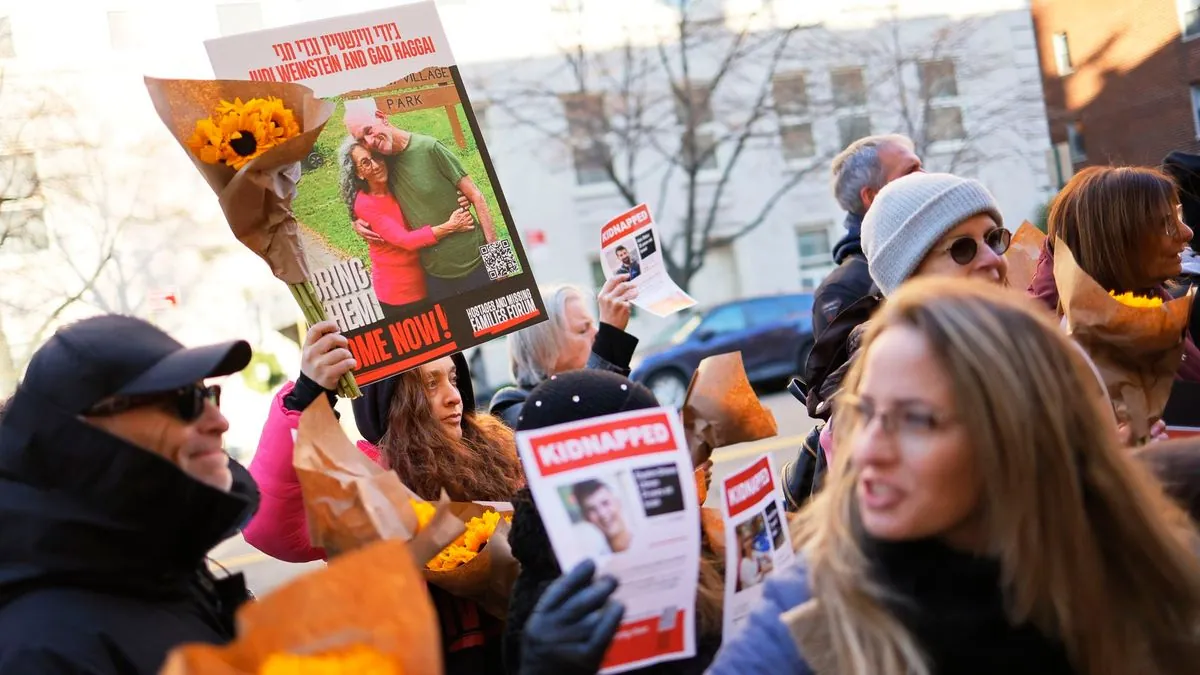The discovery of six deceased hostages in Gaza has sent shockwaves through Israel, prompting widespread protests and a general strike that has paralyzed much of the country. This development marks a critical juncture in the ongoing conflict between Israel and Hamas, which began on October 7, 2023, with a Hamas attack on Israeli communities.
On September 2, 2024, thousands of Israelis took to the streets for the second consecutive day, demanding that Prime Minister Benjamin Netanyahu secure a ceasefire agreement with Hamas to facilitate the return of the remaining 101 hostages. The protests, which saw at least half a million people gather in Jerusalem and Tel Aviv on September 1, reflect the growing public pressure on the government to take decisive action.
The Histadrut, Israel's largest labor union founded in 1920, called for a nationwide strike, disrupting essential services across the country. The strike affected various sectors, including:
- Transportation: Ben Gurion Airport, Israel's main international hub, experienced partial suspensions of services.
- Healthcare: Hospitals operated with limited capacity.
- Finance: Banks remained closed.
- Ports: Workers at the Port of Haifa, one of Israel's three major international seaports, joined the strike.
Professor Yehuda Ullmann, head of the surgery division at Rambam Hospital in Haifa, expressed the conflicting emotions felt by medical professionals: "We can't stand aside and that's why we came into a strike."
The strike, however, was short-lived. Following an intervention by Finance Minister Bezalel Smotrich, known for his far-right political views, Israel's Labor Court ordered the strike to end at 2:30 p.m. (1130 GMT) on September 2, citing its political nature rather than economic basis.
Netanyahu responded to the strike action, calling it "shameful" during wartime and claiming it strengthened Hamas. This response highlights the deep divisions within Israeli society over the government's approach to hostage negotiations and the broader conflict.
U.S. President Joe Biden added to the pressure on Netanyahu, stating that he did not believe the Israeli Prime Minister was doing enough to secure a hostage release deal. Biden mentioned that he was close to presenting a final proposal for such an agreement.
The hostage crisis stems from the October 7, 2023 attack by Hamas, which resulted in the capture of 253 hostages and the deaths of 1,200 Israelis and foreigners. In response, Israel launched a military campaign that has caused significant destruction in Gaza and resulted in over 40,600 Palestinian casualties.
"It is sad that the hostages are there, and we do want to get them all home ... but without endangering the lives of thousands of others again."
As negotiations continue, with Egyptian and Qatari diplomats acting as mediators, the situation remains tense. Hamas rejects any Israeli presence in Gaza post-ceasefire, while Netanyahu insists on maintaining Israeli troops in key areas.
This crisis has brought to the forefront Israel's complex political and social landscape. With one of the world's highest life expectancies and a technologically advanced economy, Israel now faces the challenge of balancing national security concerns with the urgent need to bring its citizens home safely.
